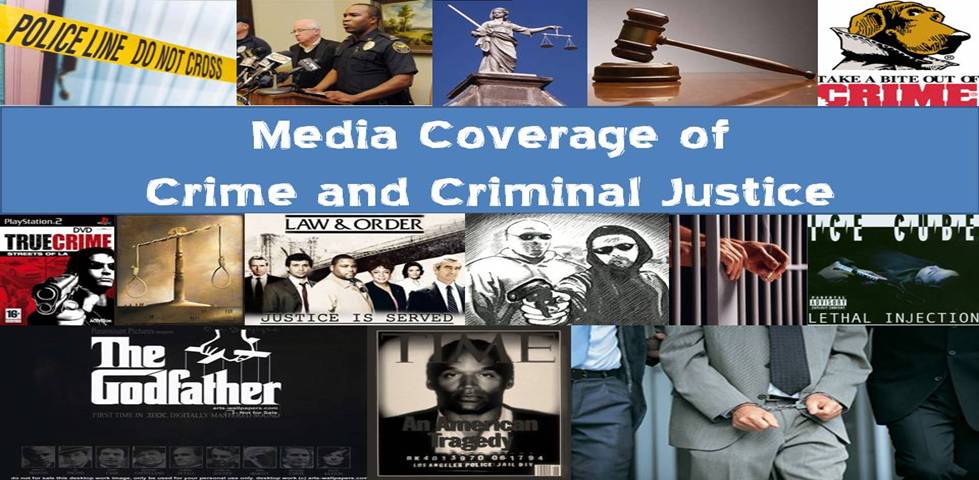This is a story that just won't seem to go away.
And good thing, too, for it is an important one.
Yes, Blacks commit more than their fair share of (some forms of) crime. This is found to be true whether one uses police statistics, victimization surveys, or even contemporary self-report studies.
But their overrepresentation in criminal justice statistics is not justified just by higher involvement in crime. To my knowledge, there is no credible study that has even been able to explain that Blacks are more likely to be stopped, searched, arrested, and have force used again them more simply because they are more likely to break the law.
Studies in places like New York City, for example, find that people of color (i.e., Blacks and Latinos) make up about 90% of people being stopped and frisked by police, but they are no more likely to be found in possession of drugs or weapons. See here and here.
So today's article in The New Yorker titled, "The Color of Justice," is very important.
From the article:
"Few issues divide white and black Americans more sharply than criminal justice. A Pew Research Center poll
found that eighty per cent of African-Americans thought the Ferguson
case raised important racial issues; only thirty-seven per cent of
whites felt the same. And while fewer than one in five African-Americans
expressed confidence that the investigation of the shooting would be
fair, more than half of whites said that they had confidence in the
investigation.
"A report
issued today by the Sentencing Project, a nonprofit advocacy group,
confirms the old news that whites and blacks view the justice system
very differently, largely because of their different treatment by it.
The report’s real significance lies in its further contention that this
disparity in perceptions contributes to our astonishingly high
incarceration rate, the highest in the world.
"White Americans are
decidedly more punitive than African-Americans or Hispanics.
Sixty-three per cent of whites support the death penalty, as compared to
only thirty-six per cent of African-Americans and forty per cent of
Hispanics. Whites are also more supportive of other harsh measures,
including trying juveniles as adults and “three-strikes” laws. Blacks,
by contrast, are substantially more likely to support public investment
in education and job training as a crime-prevention measure. Since
whites are, for the time being, the majority of the polity, our laws
reflect their preferences; American criminal law is dominated by
mandatory minimum sentences, life sentences for minor offenses, and the
widespread abandonment of parole.
"What explains whites’ preference for harsh criminal laws? Crime
victims understandably might favor more punitive responses. But whites
are considerably less likely to be victims of crime, especially violent
crime: African-Americans are six times more likely than whites to die of
homicide. Crime has always been a more serious problem in areas of
concentrated urban poverty, and blacks more often live in such
neighborhoods. Yet despite their substantially lower vulnerability to
crime, whites are more likely than blacks to support punitive crime
policies.
"Some people charge that whites use the criminal-justice
system as a continuation of Jim Crow by other means. But the Sentencing
Project report makes a more subtle point. It finds that whites support
tougher criminal laws at least partly because they overestimate black
and Hispanic crime rates. Blacks and Hispanics do commit certain crimes
more frequently, per capita, than whites, but not all. But whites
consistently overestimate the difference, according to one study, by as
much as twenty to thirty per cent. That perception affects attitudes
toward offenders and sentencing. Studies show that the more whites
attribute higher crime rates to blacks and Hispanics, the more likely
they are to support harsh criminal laws. It is less that they are
consciously seeking to subordinate racial minorities than that they fail
to treat the negative consequences of high incarceration rates as their
problem. As the report explains, 'attributing crime to racial
minorities limits empathy toward offenders and encourages retribution.'
"This is a damning indictment. If anyone were to admit that they
preferred the death penalty, life without parole, or harsh sentences
because they believe the perpetrators of violent crimes are more likely
to be black or Hispanic, we would immediately condemn them as the worst
sort of racist. If a prosecutor, judge, or juror expressed such a
sentiment, any resulting conviction or sentence would be swiftly
overturned. No one admits that they feel this way, but the studies
recounted by the Sentencing Project suggest that this is precisely what
many white Americans feel."
It is called innocent bias or implicit bias or timid bigotry. Or just call it fear of the criminalblackman, as Dr. Kathryn Russell-Brown calls it.
This is newsworthy for sure.


No comments:
Post a Comment